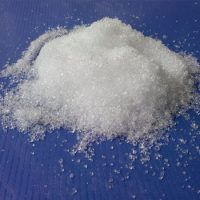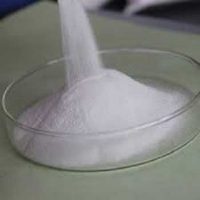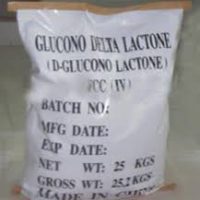Citric acid
- CAS Number: 77-92-9
- E Number: E330
- Appearance: Solid
- Purity:99.6%
- Made in: China
- Phone Num : +86-2150591759
- E-mail: info@shanghaimetex.com
- Description
- Product Specification
Description
Citric acid is known as a weak organic acid that is naturally present in citrus fruits. Due to the properties of this acid, many applications have been defined for it in various industries. The most applications of this weak acid is in the food industry, which is used to create a sour taste in products such as jams and beverages, etc., also as a preservative to prevent the growth of fungi and increase their shelf life.

Physical and Chemical Properties:
Citric acid is a white or colorless, odorless, highly acidic crystalline solid. This compound is mainly used as an acidic preservative and flavoring in foods and beverages. It is also used as an antioxidant, plasticizer, and detergent.
The most important physical and chemical properties of this compound can be summarized in the following table:
| Chemical formula | C6H8O7 |
| Molecular Weight(g/mol) | 192.123 (anhydrous),
210.14 (monohydrate) |
| Appearance | white solid |
| odor | Odorless |
| taste | Strongly acidic taste |
| Density (g/cm3 at 25 °C) | 1.665 (anhydrous),
1.542 (monohydrate) |
| Melting point (° C) | 156 (313 °F; 429 K) |
| Boiling point | 310 (590 °F; 583 K) |
| Water Solubility (g/100 cc) | Very soluble in water |
| Solubility | Soluble in acetone, alcohol, ether, ethyl acetate, DMSO
Insoluble in C6H6, CHCl3, CS2, toluene |
| Flash Point (° C) | 100 |
| Viscosity (cP) | 6.5 |
| Other names | 2-hydroxypropane-1,2,3-tricarboxylic acid,
Anhydrous citric acid |
| color | white or colorless |
| form | crystals or powder |
| Chemical Structure Depiction |  |
Types of Citric Acid:
- Dry citric acid
- Hydrated citric acid
The difference between these two acids is in their granulation and processing. That is, hydrated citric acid is crystalline, and dry citric acid is powder. Monohydrate citric acid is a hydrated citric acid obtained from the crystallization of cold water, and dry citric acid is produced from the crystallization of hot water.
Dry citric acid is the more acidic and flavoring regulator.
Hydrated citric acid can be used in juices or all liquids that need to be sour.
Production Process of Citric Acid:
Many microorganisms, including bacteria, fungi, and yeasts, are used to produce citric acid.
Applications and Uses of Citric Acid:
- Due to its acidic and tasteful properties, this compound is mainly used as a flavoring and preservative, especially in beverages and sweets.
- It is also used to stabilize or preserve drugs and as a disinfectant against viruses and bacteria.
- It acts as an excellent solder flux in industry and can be used as a dry or concentrated solution in water.
- Citric acid can be used as an alternative to nitric acid in deactivating stainless steel.
- Citric acid is an excellent chelating agent and dissolves metals by dissolving them. This material is used to remove calcareous sediments from boilers.
- It can also be used to purify water, which improves the effectiveness of soaps and detergents.
- This compound is an alpha hydroxy acid and an active ingredient in chemical peels for the skin.
- This acid is also used as one of the active compounds in the production of facial tissues with antiviral properties.
Application of Citric acid in the Food Industry:
It is one of the most common food additives in the world and is used to enhance acidity, enhance flavor and preserve food ingredients.
The acidic pH of this acid has made it a useful preservative. Because many bacteria are unable to grow in acidic environments, citric acid is often added as a preservative to jams, jellies, candies, canned food, and even meat products.
Since this compound can be prepared in powder form, it can also be used in dry foods if you want a sour taste. Citric acid is a dry alternative to lemon juice or vinegar in foods such as seasoning salts, flavoring powders, and crispy snacks.

Safety Information:
Although citric acid is a weak acid, exposure to pure grade can cause side effects. Inhalation may cause cough, shortness of breath, or sore throat. Excessive consumption may also cause abdominal pain and sore throat.
Exposure to concentrated solutions can also cause redness and pain in the skin and eyes. Prolonged or repeated use of this substance causes erosion of tooth enamel.
Packing and Storage:
Keep only in the original container in a cool, well-ventilated place away from incompatible substances.
PRODUCT DESCRIPTION: Citric acid is prized for its sour flavor, preservative quality, and ability to act as a pH buffer. For these reasons, citric acid is found in the ingredient list of many of the foods in your kitchen pantry.
Product Name: Citric Acid
CAS Number: 77-92-9
E Number: E330
Product Specification













